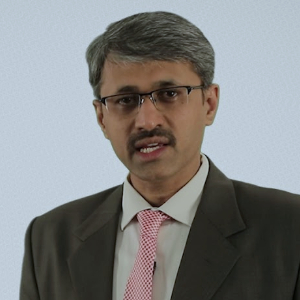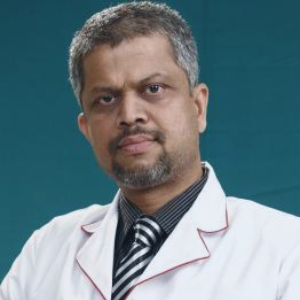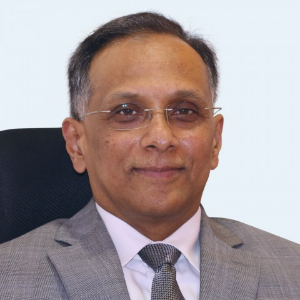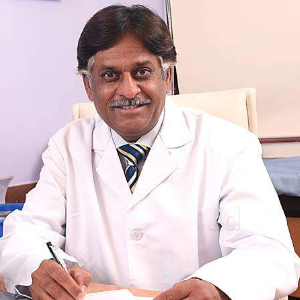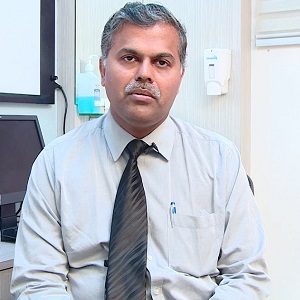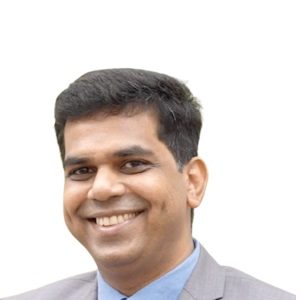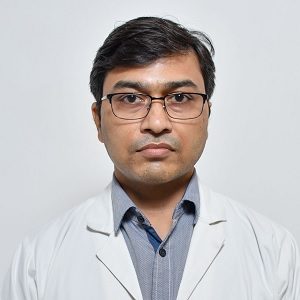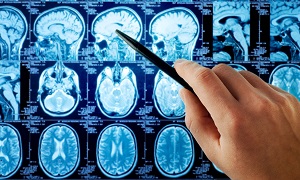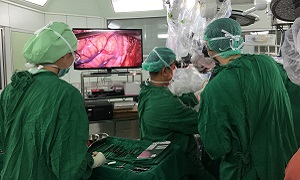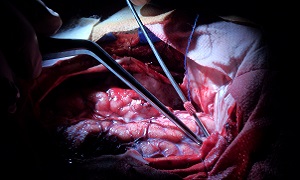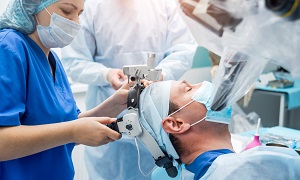Best Doctors in India for Brain Trauma Surgery
- Neurosurgeon & Spine Surgeon, Bengaluru, India
- Over 15 years’ experience
Profile Highlights:
- Dr. Praveen K S is a highly qualified neurosurgeon with over a decade of experience in handling all kinds of neurological diseases and disorders.
- He specializes in Pediatric Neurosurgery, Neuro-Oncology, Endoscopic neurosurgery, Aneurysms, and Neuro- Trauma and has performed over 4000 neurosurgeries in his career.
- Neurosurgeon & Spine Surgeon, Mumbai, India
- Over 20 years’ experience
Profile Highlights:
- Dr. Rahul Modgi is a highly established neuro and spine surgeon in Mumbai specializing in all types of brain and spine surgeries.
- Dr. Rahul Modgi’s name has been recorded in the Limca Book of Records in 2014 when he removed the heaviest iron rod from the brain of a 17-year-old patient. He has also performed various other risky surgeries for which he has greatly appreciated.
- Neurosurgeon, Bengaluru, India
- Over 30 years’ experience
Profile Highlights:
- Dr. Rajakumar V Deshpande is a renowned Neurosurgeon in Bengaluru. He performed the first pedicle screw fixation surgery for a spine injury in Bangalore.
- Dr. D V Rajakumar specializes in endoscopic neurosurgeries and has performed some of the most complex brain and spine surgeries through the endoscopic approach. His other areas of interest include minimally invasive neuro surgeries, management of cerebrovascular diseases, and brain tumor surgeries.
- Neurosurgeon, Mumbai, India
- Over 20 years’ experience
Profile Highlights:
- Dr. Suresh Sankhla is an accomplished Neurosurgeon in Mumbai specializing in endoscopic neurosurgery and onco-neurosurgery.
- Dr. Sankhla acquired his training in neurosurgery under the guidance of the best trainers from well-known medical institutes and hospitals in Ireland, UK, USA as well as India.
- He has an equal interest in research and has published more than 100 articles, papers, and abstracts in renowned national and international peer-reviewed journals.
- Neurosurgeon, Chennai, India
- Over 25 years’ experience
Profile Highlights:
- Dr. M. Balamurugan is a well-known neurosurgeon in India with 25 years of experience.
- Dr. Balamurugan assists in managing Carotid Body Tumor Embolization, Brain Arteriovenous Fistula Embolization, Nerve and Muscle Disorders, Spinal and Cerebral Tumor Embolization, etc.
- Dr. Balamurugan is a life member of various prestigious associations and institutions.
- He also authored research studies or papers and articles for several publications.
- Neurosurgeon, Chennai, India
- Over 22 years’ experience
Profile Highlights:
- Dr. Srinivasan Paramasivam is a well-known Neurosurgeon in India having an overall experience of 22 years.
- He is associated with Apollo Hospital, Chennai as a senior consultant – neurosurgeon following his assignments abroad.
- Dr. Paramasivam earned a fellowship in Endovascular Neurosurgery from New York. He has 17 years of specialized experience in Neuro Interventional Surgery, Cerebral Angioplasty, Brain Tumor Surgery, Surgical Clipping, etc.
- Neurosurgeon, Gurugram, India
- Over 25 years’ experience
Profile Highlights:
- Dr. Pawan Goyal is a renowned neurosurgeon in Gurugram with 25 years of experience.
- He gained expertise in endoscopic neurosurgery, minimally invasive spine and neurosurgery, all brain and spine tumors, head and spine injuries.
Best Brain Trauma Surgery Hospitals in India
Paras Hospital, Gurugram
- City: Gurugram, India
Hospital Highlights:
- Paras hospital was established in 2006 and is the 250 bedded flagship hospital of Paras Healthcare.
- The is supported by a team of doctors of international and national repute.
- The hospital is NABH accredited and also the first hospital in the region to have a NABL accredited laboratory.
- The hospital provides specialty medical services in around 55 departments including Neurosciences, Joint Replacement, Mother & Child Care, Minimal Invasive Surgery, Gynecology and Obstetrics, Ophthalmology, Dermatology, Endocrinology, Rheumatology, Cosmetic and Plastic surgery.
- The hospital is equipped with state-of-the-art technologies.
S L Raheja Hospital, Mahim, Mumbai
- City: Mumbai, India
Hospital Highlights:
- SL Raheja hospital is a 140-bed multi-specialty tertiary care hospital that is being managed by Fortis Healthcare Ltd.
- The hospital is a benchmark in healthcare and medical facilities in the neighborhood of Mahim & the western suburbs.
- L.Raheja Hospital, Mahim has one of the most effective ICU and Casualty care services.
- The hospital provides specialty medical services in Cardiology, Oncology, Neurology, Orthopedics, Mother & Child Care, and in Diabetes.
Wockhardt Hospitals, Mumbai
- City: Mumbai, India
Hospital Highlights:
- Wockhardt Hospitals were established in the year 1973, originally called First Hospitals and Heart Institute.
- Wockhardt Hospitals are super specialty health care networks in India, nurtured by Wockhardt Ltd, India’s 5th largest Pharmaceutical and Healthcare company.
- Wockhardt Hospitals is associated with Partners Harvard Medical International, an international arm of Harvard Medical School, USA.
- Wockhardt Heart Hospital performed India’s first endoscopic heart surgery.
- The hospital has a state-of-the-art infrastructure equipped with the latest technologies and modern equipment.
- It has special Centers of Excellence dedicated to the major specialties to provide hassle-free and high-quality clinical care.
Pushpawati Singhania Hospital & Research Institute, New Delhi
- City: New Delhi, India
Hospital Highlights:
- Established in 1996, Pushpawati Singhania Research Institute is one of the top hospitals in the NCR region, as well as one of the top facilities in India for gastroenterology. The hospital is one of South Asia’s first institutes in medical and surgical treatment for diseases related to digestion.
- The hospital is equipped with state-of-the art facilities coupled with the latest equipment as well as renowned consultants from various parts of India as well as other parts of the world.
Indian Spinal Injuries Center, New Delhi, India
- City: New Delhi, India
Hospital Highlights:
- The Indian Spinal Injuries Center (ISIC), provides state-of-the-art facilities for the management of all types of spinal ailments.
- Staffed with internationally trained, acclaimed, and dedicated spine surgeons, the hospital provides cutting-edge medical & surgical technology. The hospital provides comprehensive management of spinal injury, back pain, spinal deformities, tumors, osteoporosis, etc.
- The hospital performs motion-preserving spine surgeries including disc replacement and dynamic fixation, and minimally invasive spine surgeries such as endoscopic disc excision.
- The orthopedic service of the hospital covers all orthopedic ailments including trauma, joint diseases & replacements, oncology, pediatric orthopedics & upper limb ailment.
W Pratiksha Hospital, Gurgaon
- City: Gurugram, India
Hospital Highlights:
- W Pratiksha Hospital, Gurugram, is one of the best hospitals in the NCR region. It is also a top hospital in India for IVF. Since its inception, the hospital has performed over 5500 successful IVFs. The hospital also specializes in gynecology.
- With over 20 years of experience in providing quality healthcare, the hospital is known as one of the most trusted and valued health providers in India.
- Equipped with world-class medical facilities and advanced technology, the hospital’s doctors and clinicians also have a track record of delivering excellent results. The hospital is also known for focusing on preventive well-being as much as on curative treatment.
- The hospital has earned the trust of its patients, by providing the best available treatments at affordable costs.
Narayana Superspeciality Hospital, Gurugram
- City: Gurugram, India
Hospital Highlights:
- Situated near DLF Cyber City, Gurugram, Narayana Superspecialty Hospital is one of the top medical facilities in the Delhi NCR region, catering to the needs of the people. Known for its commitment to quality medical care and patient service, the hospital is a state-of-the-art facility with planned and well-equipped sections, which includes a spacious OPD area as well as comfortable patient rooms.
- It is the closest super-specialty hospital from Indira Gandhi International Airport towards Gurugram, and also the nearest super specialty hospital from DLF Cyber City. It is also close to major residential areas in Gurugram.
- It is part of the renowned Narayana Health Group. Established in 2000, by Dr. Devi Shetty, a renowned cardiac surgeon, it has grown to be one fo India’s leading healthcare groups.
Sir Ganga Ram Hospital, New Delhi
- City: New Delhi, India
Hospital Highlights:
- Sir Ganga Ram Hospital, New Delhi is known to provide the latest medical procedures with the latest technology in all of its units.
- The hospital has a team of reputed doctors, nurses, and healthcare professionals that ensure that patients receive quality care at affordable costs.
- Staffed with a team of highly qualified doctors, dedicated nurses, and paramedical and non-medical staff, the hospital aims to lead in healthcare delivery, medical education, training, and research.
- As per the vision of the founder, the hospital also provides free treatment to the economically weaker sections of society.
- Sir Ganga Ram Hospital also provides training to young doctors under the Diplomate in National Board(DNB) program. The DNB program at the hospital was started in 1984 and it is known for currently running the maximum number of DNB specialties in the country. It also has the distinction of having the first bone bank in India.
KIMS Hospital, Hyderabad
- City: Hyderabad, India
Hospital Highlights:
- KIMS Hospital (a brand name of Krishna Institute of Medical Sciences) is one of the largest and best multi-speciality hospitals in Hyderabad. The hospital provides various treatments to an enormous number of patients.
- The hospital has a capacity of more than 3000 beds. KIMS Hospitals offers different healthcare services in more than 25 specialities and super specialities.
- The hospital is equipped with modern medical equipment and technology. It has robotic equipment to provide minimal invasive techniques for patients.
- The hospital is aimed at providing world-class healthcare facilities and services at an affordable cost for patients.
- The various specialities and departments of the hospital include neurosciences, gastroenterology & hepatology, robotic science, reproductive sciences, dental science, oncological sciences, organ transplantation, heart and lung transplantation and mother and child care.
Fortis Hospital, Shalimar Bagh
- City: New Delhi, India
Hospital Highlights:
- Fortis Hospital in Shalimar Bagh is a multi-super specialty hospital that strives to provide world-class patient care by leaving no stone unturned.
- Fortis, Shalimar Bagh, with 262 beds and a 7.34-acre footprint, provides the best level of medical care through its team of doctors, nurses, technicians, and management professionals.
Traumatic Brain Injury
Symptoms
Depending on the type and location of the injury, a person suffering from a traumatic brain injury can show the following symptoms:
- Loss of consciousness
- Feelings of depression
- Seizures
- Confusion and disorientation
- Memory loss / amnesia
- Sleep disturbances
- Dizziness/loss of balance
- Fatigue
- Headaches
- Visual problems
- Poor attention / concentration
- Irritability / emotional disturbances
- Vomiting
If you or your child has received a blow to the head or body, that concerns you or has lead to any behavioral changes, then you should see a doctor immediately. Seek emergency medical care if there are signs or symptoms of traumatic brain injury after a recent blow or another traumatic injury to you or your child’s head.
Causes
Traumatic brain injury is caused due to a blow or other traumatic injury to your head or body. The degree of damage might depend on several factors, which include the nature of the injury as well as the force of impact.
Common events that generally lead to traumatic brain injury can include the following:
Falls- If you fall from your bed, a ladder, in the bath, or down the stairs, it can cause traumatic brain injury. It is the most common cause overall, among older adults as well as young children.
Violence- Gunshot wounds, domestic violence, child abuse, and such assaults are also common causes. A shaken baby syndrome is a traumatic brain injury that can happen to infants if they are shaken violently.
Sports Injuries- Sometimes a traumatic brain injury can also result from sports such as soccer, football, boxing, baseball, skateboarding, hockey, etc. These are common mostly among the youths.
Collisions- Collisions involving cars, motorcycles, bicycles, or pedestrians, can also lead to traumatic brain injury.
Explosive blasts or combat injuries- Among military personnel, explosive blasts are a common cause of traumatic brain injuries. It is still, however, not understood, how the damage occurs, but according to many researchers, the pressure waves passing through the brain can significantly disrupt brain function.
Traumatic brain injury can also be a result of penetrating wounds, severe blows to the head, or falls or bodily collisions with any objects following a blast.
Diagnosis
When a person is brought to the emergency room with a head injury, doctors try to learn as much as they can about the symptoms, as well as the cause and extent of the injury.
A GCS or Glasgow Coma Score is a 15-point test that is used to grade a patient’s level of consciousness. This test helps doctors assess how responsive and conscious a patient is.
Next, diagnostic imaging tests are performed, which can include the following:
Magnetic Resonance Imaging (MRI)
Computed Tomography (CT)
Magnetic Resonance Spectroscopy (MRS)
Treatment
In mild cases of traumatic brain injury, rest and medication might be enough to relieve headaches.
Medications can include anti-seizure drugs or coma-inducing drugs, etc.
However, in severe cases, surgery may be required, to address the following problems:
Repairing skull fractures
Removing clotted blood (hematomas)
Bleeding in the brain
Opening a window in the skull
Surgery can also be used to relieve pressure inside the skull by draining accumulated cerebral spinal fluid or creating a window in the skull that helps to provide more room for swollen tissues.
Most people having a significant brain injury can require rehabilitation. They can relearn basic skills, such as walking or talking. This helps to improve their abilities while performing daily activities.
Complications
Immediately or soon after a traumatic brain injury, there might be several complications. The more severe the injury is, the higher the chances of greater complications.
A person can fall into a coma, where he/she is unaware of anything and unable to respond to any stimulus. A person can also fall into a vegetative state, where a person may open his or her eyes, though he/she is unaware of his/her surroundings. A vegetative state can also become permanent, though generally, individuals progress to a minimally conscious state. In a minimally conscious state, there are signs of self-awareness.
However, when there is no measurable activity in the brain and the brainstem, this is known as brain death. This condition is considered irreversible.
There might be physical complications as well, such as seizures, infection, hydrocephalus, blood vessel damage, headaches, or vertigo. These symptoms may last for a few weeks to a few months, after a traumatic brain injury.
Sometimes, traumatic brain injuries at the base of your skull can cause nerve damage to the nerves that emerge directly from one’s brain, i.e. the cranial nerves. If these nerves are damaged, it can result in:
- Paralysis of facial muscles or loss of sensation in the face
- Loss of or altered sense of taste
- Loss of vision or double vision
- Loss of or altered sense of smell
- Problems while swallowing
- Ringing in the ear
- Dizziness
- Hearing loss
Many people who suffer a significant brain injury can show cognitive problems, such as problems in memory and learning new things. Some people can problems while solving problems or multitasking.
Problems with communication are also common following a traumatic brain injury. Many people also experience changes in behavior and emotion.
According to research, it has also been suggested that repeated or severe traumatic brain injuries can increase the risk of degenerative brain diseases.
A degenerative brain disorder causes gradual loss of the functions of the brain. These disorders include Alzheimer’s disease, Parkinson’s disease, etc.
Prevention
To reduce the risk of brain injury, follow these tips:
Seat belts and helmets- If you are driving or riding in a car, always remember a seatbelt. In case of a bicycle or motorcycle, remember to put on a helmet. Helmets are also important during certain sports such as baseball and snowboarding.
Alcohol and Drug Use- It is important not to drive under the influence of alcohol or drugs. Prescription medications can also impair one’s ability to drive.
To prevent falls around the house, follow the following tips:
- Install handrails in bathrooms
- Put a nonslip mat in the bathtub or shower
- Remove area rugs
- Install handrails on both sides of staircases
- Get regular vision checkups
- Get regular exercise
- Improve lighting in your house
- Keep stairs and floors clear of any clutter
The following tips can help your child avoid any head injuries:
- Install safety gates at the top of the stairways
- Install window guards to prevent falls
- Put a nonslip mat in the bathtub or shower
- Keep stairs clear of any clutter
- Use playgrounds that have shock-absorbing materials on the ground
- Make sure area rugs are secure
- Don’t allow your child to play on fire escapes or balconies

